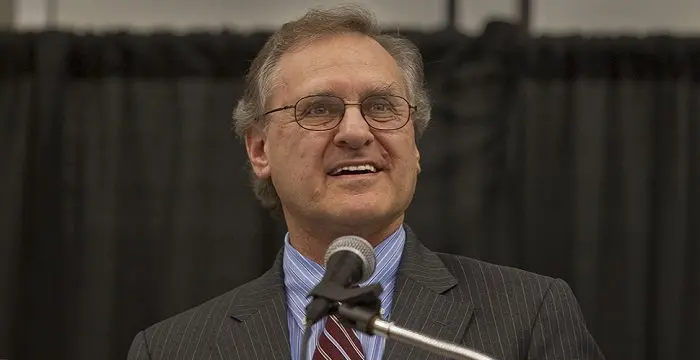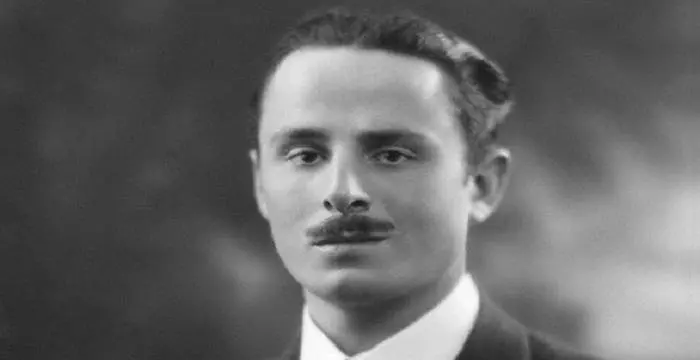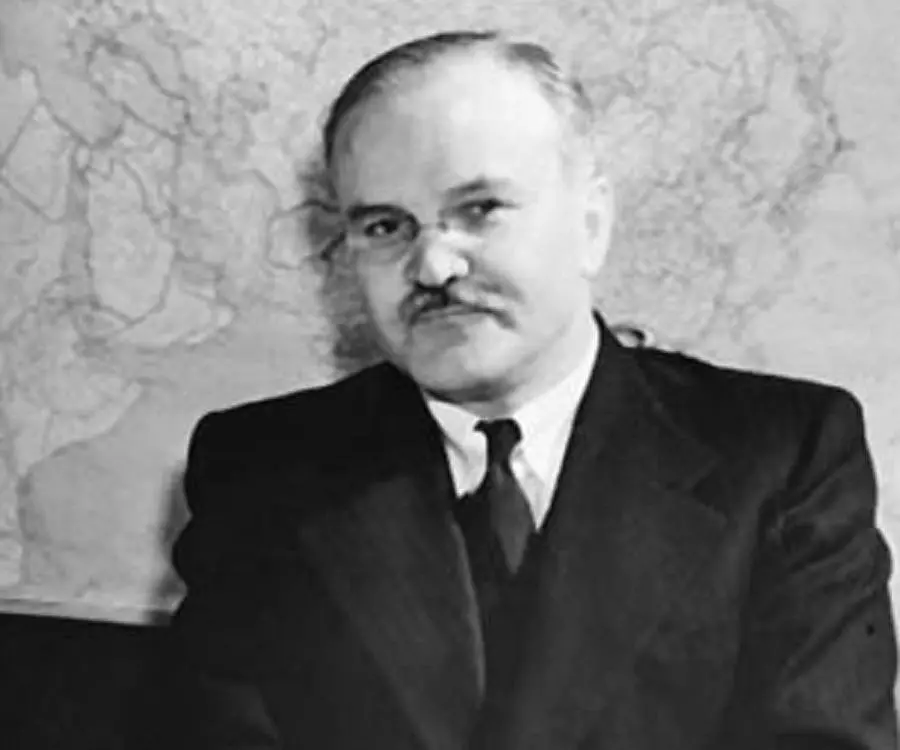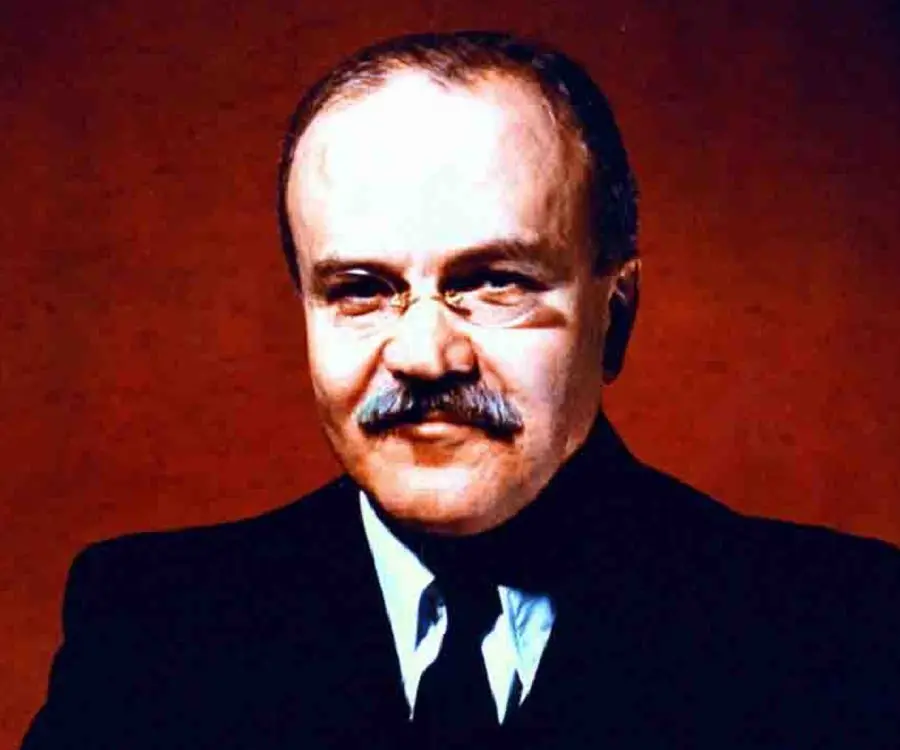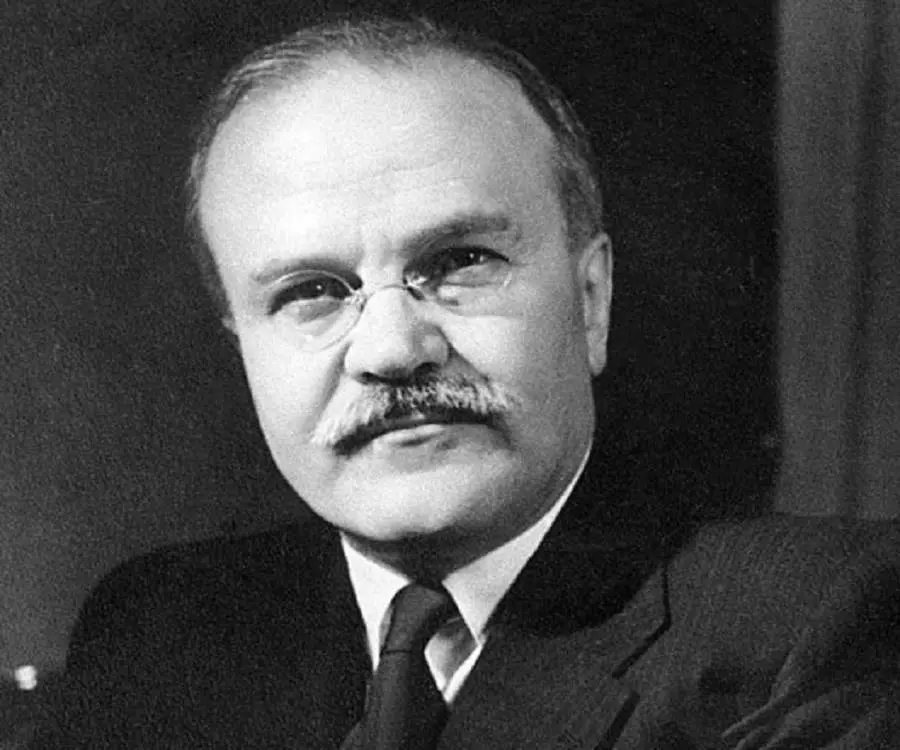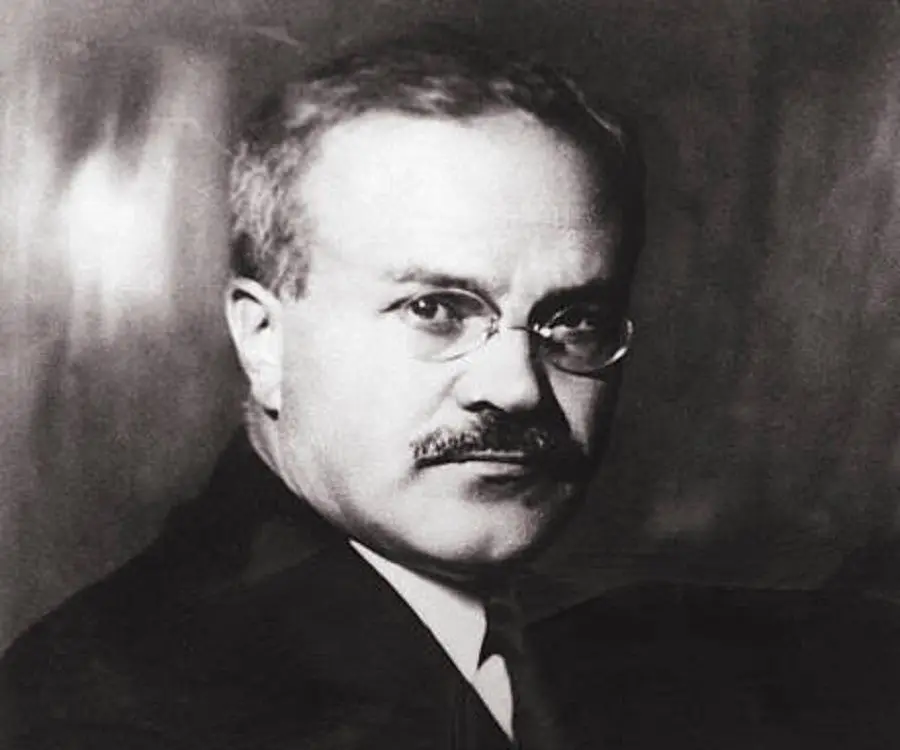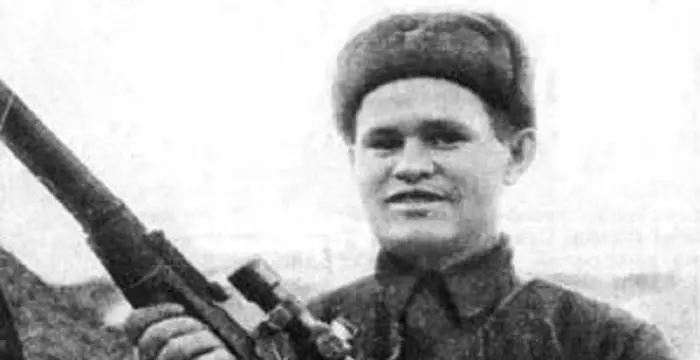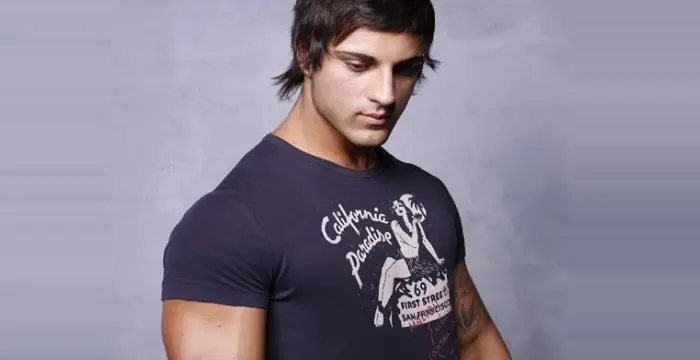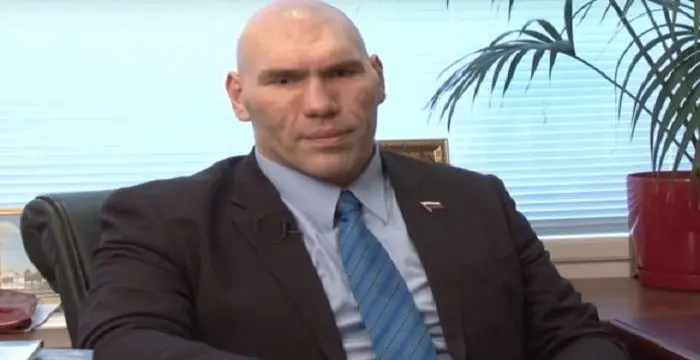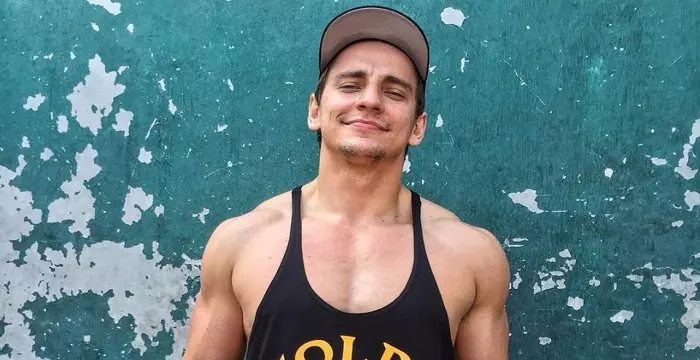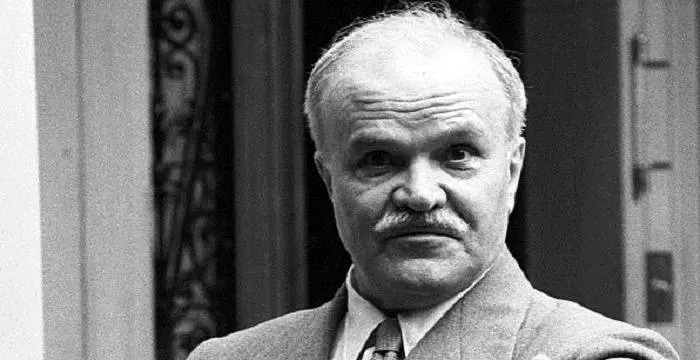
Vyacheslav Molotov - Politician, Family and Life
Vyacheslav Molotov's Personal Details
Vyacheslav Molotov was a Soviet politician and diplomat
| Information | Detail |
|---|---|
| Birthday | March 9, 1890 |
| Died on | November 8, 1986 |
| Nationality | Russian |
| Famous | Leaders, Political Leaders, Politician |
| Spouses | Polina Zhemchuzhina (m. 1921–1948) |
| Known as | Vyacheslav Mikhailovich Skryabin, Vyacheslav Mikhailovich Molotov |
| Childrens | Svetlana Molotova |
| Universities |
|
| Birth Place | Sovetsk, Russia |
| Religion | Atheism |
| Gender | Male |
| Father | Mikhail Skryabin |
| Mother | Anna Nebogatikova |
| Sun Sign | Pisces |
| Born in | Sovetsk, Russia |
| Famous as | Politician |
| Died at Age | 96 |
// Famous Politician
Sebastian Coe
Sebastian Coe is a British former track and field athlete turned politician. This biography of Sebastian Coe provides detailed information about his childhood, life, achievements, works & timeline.
Stephen Lewis
Stephen Lewis is a Canadian politician, broadcaster, diplomat and professor. This biography profiles his childhood, career, works, life, achievements and timeline.
Oswald Mosley
Sir Oswald Ernald Mosley was a British politician known for his pro-fascist beliefs. This biography profiles his childhood, family, personal life, opinions, career, etc.
Vyacheslav Molotov's photo
Who is Vyacheslav Molotov?
Vyacheslav Molotov was a Soviet politician and diplomat who played a leading role in the Soviet government from the 1920s. He served as the Minister of Foreign Affairs for several years and as a major spokesman for Soviet Union at Allied conferences during and immediately after the Second World War. Born in a village in the Russian Empire, he joined the Russian Social Democratic Labour Party during his teenage years. He was soon attracted towards the Bolshevik faction of the organization, which was headed by the famous communist revolutionary Vladimir Lenin. Molotov showed great administrative abilities and his revolutionary activities got him arrested multiple times. After Lenin’s death, he became a staunch supporter of Joseph Stalin. He eventually became the Chairman of the ‘Council of People's Commissars’, a post equivalent to the Prime Minister of the Soviet Union. He served in the post for more than a decade. Later, when Stalin became the chairman of the Council of Affairs, Molotov served as its deputy chairman. Known for his diplomatic skills, he was involved with negotiations with the Western Allied Forces after the Second World War. Though he still retained his position as a Soviet Diplomat after the War, he later lost Stalin’s favor. However, even after Stalin’s death, he continued to defend Stalin’s policies and legacy till his own death at the age of 96.
// Famous Leaders
Edi Rama
Edi Rama is the current Prime Minister of Albania. Check out this biography to know about his childhood, life, achievements, works & timeline.
Tecumseh
Tecumseh was a Native American leader of the Shawnee clan. This biography profiles his childhood, life and timeline.
Khalifa bin Zayed Al Nahyan
Sheikh Khalifa bin Zayed Al Nahyan is the current President of the United Arab Emirates (UAE). Check out this biography to know about his birthday, childhood, family life, achievements and fun facts about him.
Childhood & Early Life
Molotov was born as Vyacheslav Mikhailovich Skyrabin on 9th March 1890 in a village named Kukarta in Vyatka Governorate in the Russian Empire. He studied at a secondary school in Kazan, and also assisted his father, who was a butler churner, in his business.
Career
Vyacheslav Molotov joined the Russian Social Democratic Labour Party in 1906. He was soon attracted to the radical Bolshevik faction of the organization, which was headed by Vladimir Lenin. He got involved with the party’s revolutionary activities for which he was arrested twice (in 1909 and 1915). He also had to spend a few years in exile.
He enrolled at the St Petersburg Polytechnic Institute in 1911. During his involvement with an underground Bolshevik newspaper named ‘Pravada,’ he got acquainted with Joseph Stalin for the first time.
Molotov eventually gained prominence during the Russian Revolution. After the Bolsheviks gained power in 1917, he was involved with several provincial party organizations over the next few years.
Rise to Power
Vyacheslav Molotov was sent to Ukraine in 1918 as the civil war was breaking out; however, as he was not a military man, he didn’t take part in the fighting. Two years later, he was appointed the secretary to the Central Committee of the Ukrainian Bolshevik Party. A year later, he was called to Moscow again by Lenin, and was put in charge of the party secretariat.
His tenure as the secretary was however heavily criticized by Vladimir Lenin as well as Leon Trotsky. After Joseph Stalin became the General Secretary of the Bolshevik Party, Molotov gave his full support to his mentor. He also became Stalin’s chief agent in agricultural policy. Molotov became a full member of the Politburo in 1926, and continued his work in the Secretariat till 1930.
In 1930, he was elected Chairman of the Council of People’s Commissioners, a post considered equal to that of a Prime Minister. In this post, Molotov used to oversee the collectivization of agriculture under Stalin’s regime. Like Stalin, he used force and propaganda as a tool to crush the resistance of the peasants to collectivization. Millions of peasants who owned property were deported to the gulags.
The death of Sergei Kirov, the head of the party organization in Leningrad, led to the Great Purge over the course of which 20 out of the 28 People’s Commisars in Molotov’s Government were executed on Stalin’s and Molotov’s orders. Whenever Stalin required Molotov to sign the death warrants of prominent purge victims, Molotov would always do so without questioning.
There is no record of Molotov trying to moderate the course of the Purge or trying to save individuals as some other Soviet officers did. Molotov is known to have approved 372 documented execution lists. Even after Stalin’s death, Molotov continued to support the Great Purge as well as the executions carried out by his government.
In 1939, Molotov became the Minister of Foreign Affairs of the Soviet Union, after succeeding Maxim Litvinov. He was involved with the signing of a treaty with Nazi Germany the following year, which was known as the ‘Molotov-Ribbentron Pact’. However, it was Joseph Stalin and Adolf Hitler who had decided the content of the treaty. It was a neutrality pact between the two nations, and an important part of the agreement was the secret protocol, providing for the partition of Poland, Finland as well as the Baltic States between the Soviet Union and Nazi Germany.
Molotov was also responsible for the negotiation of the wartime alliances with the Great Britain and the USSR in 1942. At the Major Wartime international conferences, he represented the USSR along with Joseph Stalin. He also headed the Soviet delegation to the San Francisco conference in 1945, which led to the UN’s establishment. Later, he represented the UN at the postwar foreign minister’s conferences till 1949, when he stepped down as Minister of Foreign Affairs.
Later Years
In 1952, at the 19th Party Congress, Molotov was elected to the replacement of the Politburo, known as the Presidium. However, as he had lost Stalin’s favor, he was not among the members of the newly established secret body called Bureau of the Presidium.
After the death of Joseph Stalin, Molotov again served as the foreign minister from 1953. However, because of his poor relations with Nikita Khrushchev, he was dismissed from his government offices.
In 1961, Khrushchev carried out his de-Stalinization campaign and Molotov’s devotion to Stalin got him expelled from the party in 1962. All his party documents and files were also destroyed. He was later rehabilitated by Soviet leader Konstantin Chernenko in 1984.
Awards & Achievements
Vyacheslav Molotov had received several awards and honors for his service to the Soviet Union. He was named a ‘Hero of Socialist Labour’ and awarded four Orders of Lenin, the Order of the October Revolution, the Order of the Red Banner of Labour and the Order of the Badge of Honour.
He also received medals, such as the ‘Medal for the Defense of Moscow’ and ‘Medal in Commemoration of the 800th Anniversary of Moscow’.
Personal Life
Molotov married Polina Zhemchuzhina in 1921. From 1932 to 1936, she served as the director of the Soviet National cosmetics trust. Later, she served as the Minister of Fisheries as well as the head of Textile Production in the Ministry of Light Industry.
As she was a supporter of Zionism, she was arrested for treason in 1948, and sentenced to five years in a labor camp. She was released in 1953, shortly after Stalin’s death. She was then reunited with Molotov and the couple lived together until her death in 1970.
Molotov passed away on 8 November 1986, after being hospitalized in the Kuntsevo Hospital in Moscow. He was 96 at the time of his demise.
Trivia
The Molotov cocktail, a term used for a variety of bottle-based improvised incendiary weapons, was coined by the Finns during the Second World War, as an insulting reference to Vyacheslav Molotov.
According to American journalist John Gunther, Molotov was a vegetarian and a teetotaler.
// Famous Political Leaders
Edi Rama
Edi Rama is the current Prime Minister of Albania. Check out this biography to know about his childhood, life, achievements, works & timeline.
Khalifa bin Zayed Al Nahyan
Sheikh Khalifa bin Zayed Al Nahyan is the current President of the United Arab Emirates (UAE). Check out this biography to know about his birthday, childhood, family life, achievements and fun facts about him.
Leo Varadkar
Cam Leo Varadkar is the current Taoiseach—the Prime Minister—of the Republic of Ireland. Check out this biography to know about his childhood, family life, achievements and other facts about his life.
Vyacheslav Molotov biography timelines
- // 9th Mar 1890Molotov was born as Vyacheslav Mikhailovich Skyrabin on 9th March 1890 in a village named Kukarta in Vyatka Governorate in the Russian Empire. He studied at a secondary school in Kazan, and also assisted his father, who was a butler churner, in his business.
- // 1911He enrolled at the St Petersburg Polytechnic Institute in 1911. During his involvement with an underground Bolshevik newspaper named ‘Pravada,’ he got acquainted with Joseph Stalin for the first time.
- // 1917Molotov eventually gained prominence during the Russian Revolution. After the Bolsheviks gained power in 1917, he was involved with several provincial party organizations over the next few years.
- // 1918Vyacheslav Molotov was sent to Ukraine in 1918 as the civil war was breaking out; however, as he was not a military man, he didn’t take part in the fighting. Two years later, he was appointed the secretary to the Central Committee of the Ukrainian Bolshevik Party. A year later, he was called to Moscow again by Lenin, and was put in charge of the party secretariat.
- // 1926 To 1930His tenure as the secretary was however heavily criticized by Vladimir Lenin as well as Leon Trotsky. After Joseph Stalin became the General Secretary of the Bolshevik Party, Molotov gave his full support to his mentor. He also became Stalin’s chief agent in agricultural policy. Molotov became a full member of the Politburo in 1926, and continued his work in the Secretariat till 1930.
- // 1930In 1930, he was elected Chairman of the Council of People’s Commissioners, a post considered equal to that of a Prime Minister. In this post, Molotov used to oversee the collectivization of agriculture under Stalin’s regime. Like Stalin, he used force and propaganda as a tool to crush the resistance of the peasants to collectivization. Millions of peasants who owned property were deported to the gulags.
- // 1939In 1939, Molotov became the Minister of Foreign Affairs of the Soviet Union, after succeeding Maxim Litvinov. He was involved with the signing of a treaty with Nazi Germany the following year, which was known as the ‘Molotov-Ribbentron Pact’. However, it was Joseph Stalin and Adolf Hitler who had decided the content of the treaty. It was a neutrality pact between the two nations, and an important part of the agreement was the secret protocol, providing for the partition of Poland, Finland as well as the Baltic States between the Soviet Union and Nazi Germany.
- // 1952In 1952, at the 19th Party Congress, Molotov was elected to the replacement of the Politburo, known as the Presidium. However, as he had lost Stalin’s favor, he was not among the members of the newly established secret body called Bureau of the Presidium.
- // 1953After the death of Joseph Stalin, Molotov again served as the foreign minister from 1953. However, because of his poor relations with Nikita Khrushchev, he was dismissed from his government offices.
- // 8th Nov 1986Molotov passed away on 8 November 1986, after being hospitalized in the Kuntsevo Hospital in Moscow. He was 96 at the time of his demise.
// Famous Russian peoples
Vasily Zaytsev
Vasily Zatysev was a Russian sniper who served during the World War II. Check out this biography to know about his childhood, family life, achievements and fun facts about him.
Zyzz (Aziz Shavershian)
Zyzz (Aziz Shavershian) was a popular Australian Body Builder and internet personality. Check out this biography to know about his childhood, family life, achievements and other facts about his life.
Kristina Pimenova
Read this bio to gather several facts, trivia and many details related to the personal and family life of Kristina Pimenova.
Nikolai Valuev
Nikolai Valuev is a Russian retired professional boxer, actor, politician, and author. Check out this biography to know about his childhood, family life, achievements and fun facts about him.
Olesya Rulin
Olesya Rulin is a Russian-American actress, best known for her role in Disney's commercially successful ‘High School Musical’ franchise. Check out this biography to know about her childhood, family life, achievements and fun facts about her life.
Vitaly Zdorovetskiy
Check out all that you wanted to know about Vitaly Zdorovetskiy, the budding YouTube Personality; his birthday, family and personal life, his girlfriends, fun trivia facts and more.
Vyacheslav Molotov's FAQ
What is Vyacheslav Molotov birthday?
Vyacheslav Molotov was born at 1890-03-09
When was Vyacheslav Molotov died?
Vyacheslav Molotov was died at 1986-11-08
Where was Vyacheslav Molotov died?
Vyacheslav Molotov was died in Moscow
Which age was Vyacheslav Molotov died?
Vyacheslav Molotov was died at age 96
Where is Vyacheslav Molotov's birth place?
Vyacheslav Molotov was born in Sovetsk, Russia
What is Vyacheslav Molotov nationalities?
Vyacheslav Molotov's nationalities is Russian
Who is Vyacheslav Molotov spouses?
Vyacheslav Molotov's spouses is Polina Zhemchuzhina (m. 1921–1948)
Who is Vyacheslav Molotov childrens?
Vyacheslav Molotov's childrens is Svetlana Molotova
What was Vyacheslav Molotov universities?
Vyacheslav Molotov studied at Saint Petersburg State Polytechnic University
What is Vyacheslav Molotov's religion?
Vyacheslav Molotov's religion is Atheism
Who is Vyacheslav Molotov's father?
Vyacheslav Molotov's father is Mikhail Skryabin
Who is Vyacheslav Molotov's mother?
Vyacheslav Molotov's mother is Anna Nebogatikova
What is Vyacheslav Molotov's sun sign?
Vyacheslav Molotov is Pisces
How famous is Vyacheslav Molotov?
Vyacheslav Molotov is famouse as Politician

